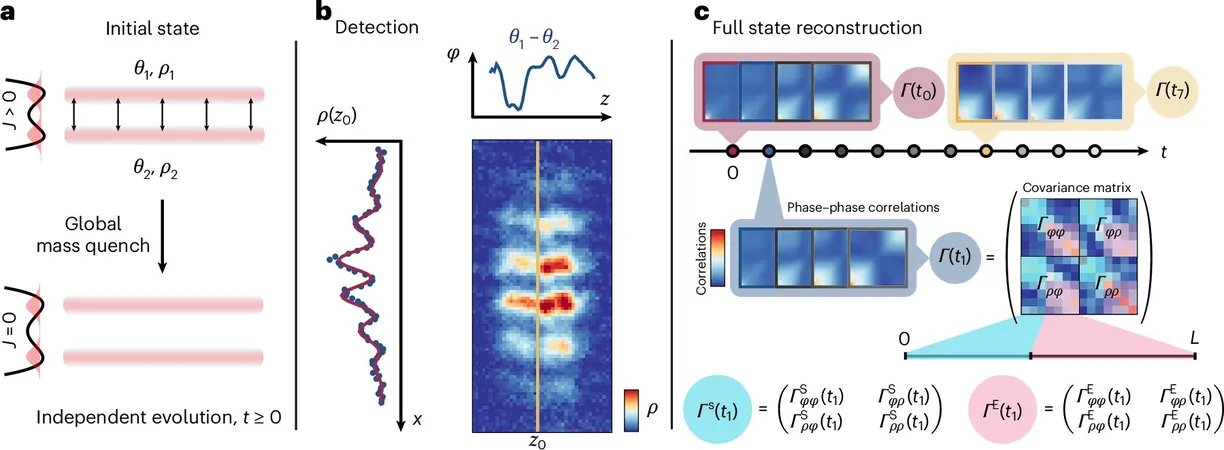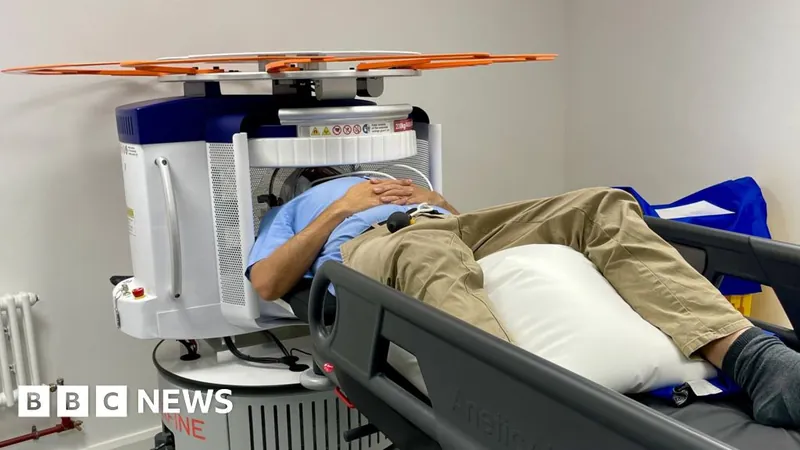
Unlocking Quantum Mysteries: A Breakthrough Approach to Landauer's Principle
2025-06-25
Author: Nur
Revolutionizing Our Understanding of Information and Energy
In a groundbreaking study, researchers from TU Vienna, Freie Universität Berlin, University of British Columbia, University of Crete, and Università di Pavia have taken a bold leap forward by extending Landauer's principle into the realm of quantum many-body systems. This principle, which states that erasing a single bit of information from a system results in energy dissipation, has historically been confined to classical computing. However, this new research is set to shift the paradigm.
The Union of Thermodynamics and Quantum Theory
Published in *Nature Physics*, the research sheds light on the deep connections between thermodynamics and information theory, a relationship hinted at by pioneers like Boltzmann and Gibbs. Senior author Jens Eisert emphasizes that the careful management of information can dictate whether energy is transformed into productive work or simply dissipated as waste.
Thought Experiments: The Roots of Discovery
Delving into the history of thermodynamics, the team references pivotal thought experiments by historical figures such as James Clerk Maxwell and Leo Szilard, who challenged earlier theories by demonstrating the intricate link between thermodynamic systems and information availability. Their groundbreaking insights laid the groundwork for the researchers’ current explorations.
Innovative Experimentation in Quantum Realms
This study builds upon past theories while employing an innovative experimental platform crafted by Jörg Schmiedmayer. The research utilizes an atom chip architecture that masterfully controls ultracold atoms, allowing scientists to observe phenomena in a tunable quantum regime. Eisert remarked, "Our focus was on how concepts like information deletion and heat production appear in this unique environment, naturally leading us to revisit Landauer's principle."
Pushing the Boundaries of Quantum Field Theory
Eisert and his team employed a quantum field simulator built from ultracold Bose gas atoms to explore the nuances of Landauer's principle in complex quantum systems. Their experiments involved tracking the dynamics of a quantum field transitioning from a massive to a massless state, providing new insights into entropy production and the intricate dance between thermodynamics and information.
Aligning Theory with Experimental Reality
Remarkably, the outcomes of their simulations aligned closely with predictions rooted in quantum field theory, blending classical and quantum concepts through a semi-classical quasiparticle framework. Eisert noted the use of a dynamic tomographic reconstruction method, enabling them to reveal otherwise hidden quantum properties.
A Bright Future for Quantum Technologies
This research not only elucidates Landauer's principle within quantum fields but also paves the way for the development of advanced quantum technologies. As Eisert suggests, the findings enhance understanding of these experimental platforms and the possibility of creating a thermodynamic engine operating at quantum levels.
Inspiring Future Innovations
The study positions quantum simulators of ultracold atoms as a vital tool for probing quantum thermodynamics, potentially igniting further experiments that could lead to breakthroughs in quantum processing and technology. "We look forward to exploring and advancing this platform further," Eisert concludes, hinting at an exciting era of discovery ahead.




 Brasil (PT)
Brasil (PT)
 Canada (EN)
Canada (EN)
 Chile (ES)
Chile (ES)
 Česko (CS)
Česko (CS)
 대한민국 (KO)
대한민국 (KO)
 España (ES)
España (ES)
 France (FR)
France (FR)
 Hong Kong (EN)
Hong Kong (EN)
 Italia (IT)
Italia (IT)
 日本 (JA)
日本 (JA)
 Magyarország (HU)
Magyarország (HU)
 Norge (NO)
Norge (NO)
 Polska (PL)
Polska (PL)
 Schweiz (DE)
Schweiz (DE)
 Singapore (EN)
Singapore (EN)
 Sverige (SV)
Sverige (SV)
 Suomi (FI)
Suomi (FI)
 Türkiye (TR)
Türkiye (TR)
 الإمارات العربية المتحدة (AR)
الإمارات العربية المتحدة (AR)